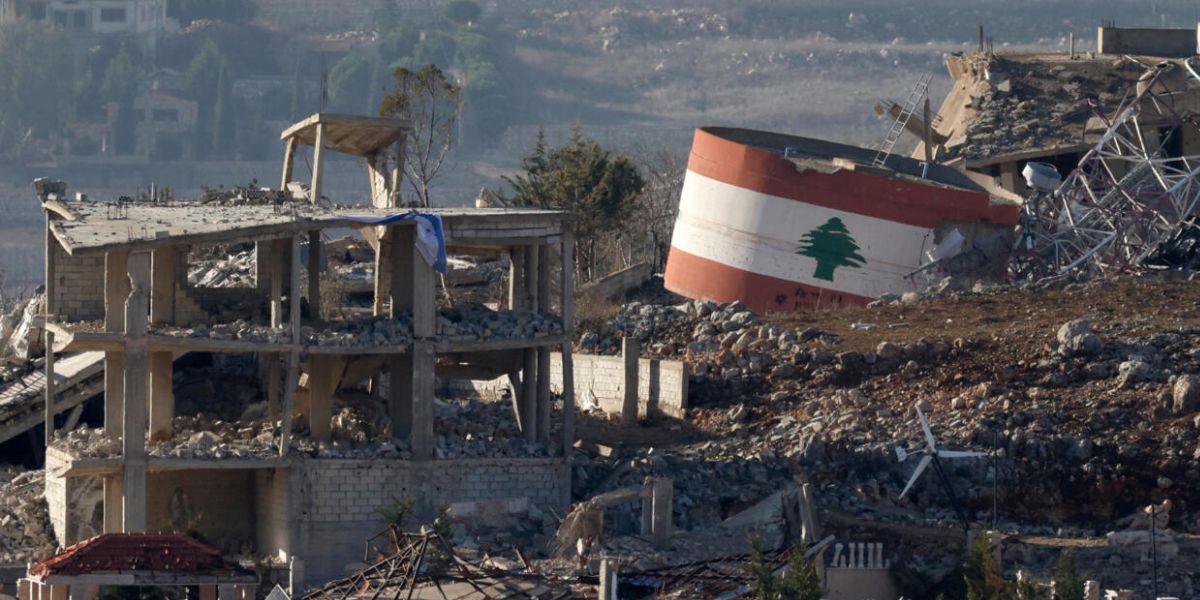– –
Israel and Hezbollah, the militant group based in Lebanon, have reached a 60-day ceasefire agreement.
The ceasefire began at 4am local time (02:00 GMT) on Wednesday amid concerns about whether the truce would hold and lead to the permanent end of fighting between Israel’s military and Hezbollah forces.
US President Joe Biden said the deal would lead to a “permanent cessation of hostilities”. Biden added that the US would lead another push for a ceasefire in Gaza.
– –
Join Our WhatsApp Group
Don’t miss out on any real-time information. Join our WhatsApp group to stay updated.
Negotiators have described the Israel-Hezbollah deal as the foundation for a lasting truce.
During the period, Hezbollah fighters are expected to retreat 40 kilometres from Israel’s border, with Israeli ground forces withdrawing from Lebanese territory.
Hours before the agreement, Israeli forces bombarded Beirut’s southern border 20 times in two minutes, with Hezbollah saying it launched drones towards Israel.
On Tuesday, Israeli strikes in Lebanon killed 25 people.
– –
Despite the ceasefire deal, Israel has warned residents displaced by fighting not to return to their homes in Lebanon just yet.
Israel and Hezbollah intensified air strike exchanges in August. Israeli troops began a land invasion of Lebanon almost two months ago.
On August 25, the Israeli military said 100 of its fighter jets launched pre-emptive strikes into Lebanon after identifying that Hezbollah was “preparing to fire missiles and rockets toward Israeli territory”.
Israel said the jets “struck and destroyed thousands of rocket launcher barrels” across dozens of launch sites in Lebanon. Shortly after the strikes from Israel, Hezbollah said it launched hundreds of rockets and drones into Israeli territory.
The group said it fired more than 320 rockets, adding that the “first phase” of its attack against Israel was complete.
It said the strikes were a retaliation for the assassination of a senior commander in Beirut by Israel. In mid-September, at least a dozen people were reported killed and about 2,750 wounded after pagers exploded across Lebanon.
– –
Israel was blamed for the explosion of the pagers.
A pager is a wireless communications device that receives and displays messages. Hezbollah uses pagers as a low-tech means of communication to ostensibly evade tracking by Israel.
Join Our WhatsApp Group
Don’t miss out on any real-time information. Join our WhatsApp group to stay updated.
Meanwhile, world leaders have welcomed a ceasefire deal between Israel and Hezbollah.
– United States and France –
The ceasefire between Israel and Lebanon will protect Israel from the threat of Iran-backed militant group Hezbollah and create the conditions for a “lasting calm”, US President Joe Biden and French President Emmanuel Macron said ahead of the truce coming into force.
“The announcement today will cease the fighting in Lebanon, and secure Israel from the threat of Hezbollah and other terrorist organizations operating from Lebanon,” the leaders said in a joint statement.
The United States and France will work “to ensure this arrangement is fully implemented” and lead international efforts for “capacity-building” of the Lebanese army, they added.
Biden welcomed the deal as “good news” and also said the United States would lead a fresh effort to secure a truce between Israel and Palestinian militant group Hamas in Gaza.
Macron said the Lebanon ceasefire should “open the path” for an ending to the war in Gaza.
– Israel –
Israeli Prime Minister Benjamin Netanyahu thanked US President Biden for his “involvement in securing the ceasefire agreement”.
He told Biden in a call that he appreciated the US leader’s “understanding that Israel will maintain its freedom of action in enforcing it”, according to Netanyahu’s office.
– Lebanon –
Lebanese Prime Minister Najib Mikati said the ceasefire was a “fundamental step” towards restoring stability in the region.
Thanking France and the United States for their involvement, Mikati also reiterated his government’s commitment to “strengthen the army’s presence in the south”.
– Iran –
Iran, a backer of both Hezbollah and Hamas, welcomed the end of Israel’s “aggression” in Lebanon, after the ceasefire came into force.
“Welcoming the news” of the end of Israel’s “aggression against Lebanon”, foreign ministry spokesman Esmaeil Baghaei said in a statement, stressing Iran’s “firm support for the Lebanese government, nation and resistance”.
– Germany –
German Foreign Minister Annalena Baerbock welcomed the deal, hailing it as “a ray of hope for the entire region”.
“People on both sides of the border want to live in genuine and lasting security,” Baerbock said in a statement, calling the deal “a success for diplomacy”.
– United Kingdom –
British Prime Minister Keir Starmer praised a “long overdue” ceasefire that would “provide some measure of relief to the civilian populations” of both Israel and Lebanon.
Calling for the truce to be “turned into a lasting political solution in Lebanon”, Starmer vowed to be at the “forefront of efforts to break the ongoing cycle of violence in pursuit of a long-term, sustainable peace in the Middle East”.
– European Union –
EU chief Ursula von der Leyen hailed the “very encouraging news” of the ceasefire, saying it would increase Lebanon’s “internal security and stability”.
The announcement was welcomed news “first and foremost for the Lebanese and Israeli people affected by the fighting”, Von der Leyen said on X.
“Lebanon will have an opportunity to increase internal security and stability thanks to Hezbollah’s reduced influence,” she said.
– United Nations –
A top UN official welcomed the ceasefire agreement, but warned that “considerable work lies ahead” to implement the deal.
“Nothing less than the full and unwavering commitment of both parties is required,” UN Special Coordinator for Lebanon, Jeanine Hennis-Plasschaert, said in a statement.
Intel Region News is on WhatsApp!
Share News with us via Email:
:
– –



